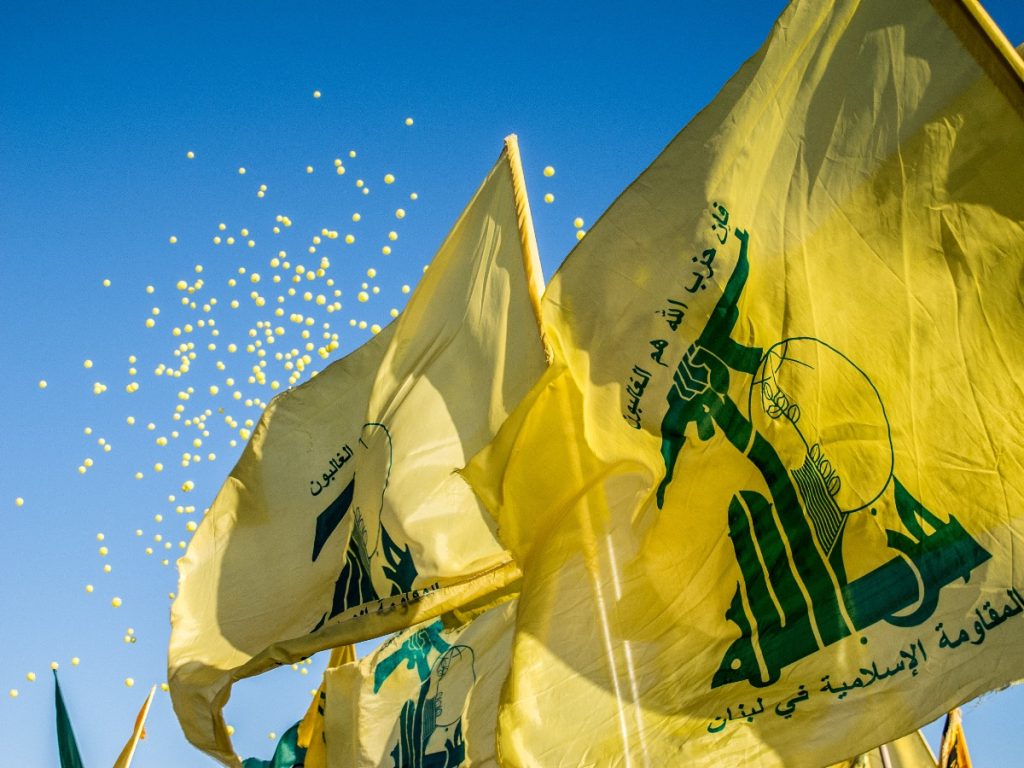Australia/Israel Review
How to Help Lebanon while hindering Iran
Jun 30, 2019 | Ram Yavne & Harry Hoshovsky

Lebanon is a complicated country, historically riven by sectarian strife, serial economic mismanagement, and now a political system increasingly dictated by Hezbollah, Iran’s premier terrorist proxy. Yet policymakers tend to view these as separate problems, which complicates efforts to promote stability. Washington needs a dual-edged strategy that hinders Hezbollah’s growing domestic influence while promoting the necessary economic growth to help Beirut break free from Teheran’s grasp.
Since its inception, Hezbollah has provided social, religious, healthcare and educational services to Lebanese Shi’ites to facilitate recruitment of new fighters and for disseminating its ideology. These non-state patronage networks have aided its electoral ambitions; last year, Hezbollah and its allies secured two-thirds of major government ministries. This electoral success has been built upon the bedrock of its widespread popularity among Lebanese Shi’ites – a recent poll showed 77% view Hezbollah in a “very positive” manner.
These high levels of sectarian support for Hezbollah have had a tangible impact on UNIFIL, which is the UN peacekeeping force mandated to oversee southern Lebanon’s demilitarisation of all non-state militias. While UNIFIL touts a positive relationship with locals, this downplays the many instances where its patrols were violently obstructed by villagers and undercover Hezbollah operatives.
Unfortunately, UNIFIL’s staunch refusal to search Lebanese private property for weapons and the Lebanese Armed Force’s (LAF) unwillingness to disarm Hezbollah have had predictable results. Since 2006, Hezbollah has increased its missile arsenal from 10,000 to over 120,000 long-range missiles and short-range artillery rockets. While Israel is fully prepared to handle any military conflict with Hezbollah, the terrorist group is undeniably a more formidable foe today than it was 13 years ago.
The United States and its allies can take steps to alleviate the possibility of conflict. For starters, they can put significant pressure on the LAF to fulfil its legal obligations under UN Security Council Resolution 1701 to ensure Hezbollah is not deployed in southern Lebanon.
As former US senior military officers Lieutenant General (ret.) John “Mick” Bednarek and Lt. Gen. (ret.) Richard Natonski recently pointed out: despite the LAF receiving US$1.7 billion worth of US military equipment to curtail Iranian and Hezbollah influence, it hasn’t made serious progress. Future American military aid should be conditioned on the LAF providing tangible proof that it is both dismantling Hezbollah’s war machine and disrupting Iran’s arms transfers to the group.
Unfortunately, because Hezbollah is entrenched economically, politically and socially within Lebanon, neutralising its military hardware is only a partial solution to diminishing its overall influence. The fulcrum for countering Hezbollah is to augment Washington’s existing sanctions against the terrorist group and its Iranian patron.
The first step is to target Hezbollah’s military and economic capabilities by levelling additional sanctions against Lebanese institutions and individuals that aid Hezbollah financially and practically. These could be authorised under the US Congress’ Hezbollah International Financing Prevention Amendments Act of 2018, which aims to sever Hezbollah from Lebanese banks and other financial institutions as well as target funding streams and individuals connected with the group. Similarly, the US Sanctioning the Use of Civilians as Defenseless Shields Act can sanction construction companies that help Hezbollah hide its military armaments both near and within civilian structures.
Although Hezbollah chief Hassan Nasrallah recently admitted that US sanctions against Iran are now hurting Hezbollah’s cash flow, Beirut has long been unable to compete with Hezbollah’s sectarian patronage systems because of poor economic growth and high levels of sovereign debt.
Thus, the United States and the European Union should encourage stable economic growth across Lebanon while also urging the development of a broad-based political repudiation of Hezbollah at the polls.
With American encouragement, the international community should fund Lebanon’s Capital Investment Plan, which will overhaul the country’s ageing infrastructure. While Beirut procured pledges for US$11 billion in soft loans, disbursement is contingent on it slashing spending to increase revenue and thereby reduce its long-standing fiscal deficit. There are now concerns that the latest budget will not lower Lebanon’s heavy debt sufficiently, which risks its long-term economic recovery. Luckily, a major source of potential revenue for Beirut could come from its offshore hydrocarbon resources, which Washington could offer to help develop in exchange for Lebanon settling its maritime border dispute with Israel in the eastern Mediterranean.
Frustratingly, given Hezbollah’s wellspring of sectarian support and estimated monetary reserves of US$1.1 billion, non-Hezbollah Shi’ite politicians and parties have struggled to compete against it electorally. These attempts were also thwarted by Nasrallah claiming conspiratorially that these Shi’ites were secretly allied with Sunni jihadists and the Islamic State.
Therefore, it is imperative for the international community to help these opposition Shi’ite organisations challenge Hezbollah’s claim as the sole representative of their entire religious community. Similarly, this effort should involve aiding moderate Sunni, Christian, and Druze parties to achieve stronger election results so that Hezbollah can be beaten soundly at the ballot box.
Only by viewing Lebanon through a holistic lens can the United States and the international community best position themselves to craft policies that will systematically diminish Hezbollah’s influence in Lebanon’s social, economic, and political spheres, as well as promote a strong Lebanese economy free of Iran’s overarching sway.
Brig. Gen. (ret.) Ram Yavne is a former head of the strategic division in the planning directorate of the IDF General Staff and a distinguished fellow at the Jewish Institute for National Security of America’s (JINSA) Gemunder Center for Defense and Strategy. Harry Hoshovsky is a policy analyst at JINSA’s Gemunder Center for Defense and Strategy. © JINSA, reprinted by permission, all rights reserved.
RELATED ARTICLES

Enormous hope that Iran is being liberated: Colin Rubenstein on Sky News





